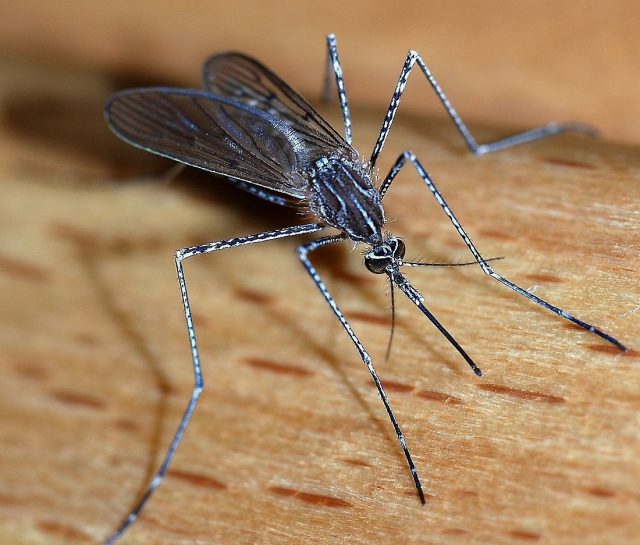Atlantic County health officials are urging residents to take measures to protect themselves from mosquito-borne illness by reducing their exposure to mosquito bites as officials have confirmed the first human case of West Nile virus in an Atlantic County resident this year.
Officials are conducting mosquito surveillance and implementing mosquito control measures.
It has not been determined where the individual may have been bitten but the patient is recovering well.
According to the Centers for Disease Control, as of October 2, there have been 28 human cases of West Nile virus in New Jersey this year compared to only three human cases in 2020.
Atlantic County last reported a human case of West Nile virus in 2019.
County officials have confirmed West Nile virus in 17 mosquito collections this year from various areas of the county, including Buena Borough, Egg Harbor City, Galloway, Hammonton, Hamilton Township, Mullica, Northfield, Somers Point and Weymouth Township.
West Nile virus is carried by infected mosquitoes and can be transmitted to birds, animals and humans.
There is no vaccine or specific treatment for West Nile virus. The best way to prevent the disease is to avoid mosquito bites.
Most infected humans will not develop symptoms, according to the Centers for Disease Control, but those who do may experience a fever, headache and body aches, skin rashes and swollen lymph glands.
Most patients will recover completely within two weeks. In more severe infections, intensive supportive therapy may be needed. About one of every 150 people infected develop a serious illness.
Residents and business owners can take steps to reduce mosquito populations on their properties by emptying or changing outdoor standing water at least weekly to stop mosquito breeding.
Areas that may need attention include flower pots, birdbaths, clogged rain gutters, plastic wading pools and wheelbarrows, and any containers or trash that may be difficult to see such as under bushes, homes or around building exteriors.
Contact with mosquitoes can also be reduced by using air-conditioning when possible and ensuring window screens are in good repair.
Individuals should also use an insect repellent whenever going outdoors.
The Centers for Disease Control recommends the use of products containing active ingredients which have been registered by the U.S. Environmental Protection Agency for use as repellents applied to the skin and clothing and approved for efficacy and human safety when applied as directed.
Be sure to follow product directions carefully and consult with your healthcare provider prior to using on children.
For more information about West Nile Virus, visit www.aclink.org/publichealth or call the Division of Public Health at 609-645-5971.
If you need assistance in removing stagnant puddles or floodwater from your property, call the Office of Mosquito Control at 609-645-5948.








